 Career technical education (CTE) has the power to transform the workforce landscape. By teaching workforce-specific skills, learners can find a career-specific pathway that leverages their passion and talents. Unfortunately, in the United States, CTE is often undervalued and underutilized.
Career technical education (CTE) has the power to transform the workforce landscape. By teaching workforce-specific skills, learners can find a career-specific pathway that leverages their passion and talents. Unfortunately, in the United States, CTE is often undervalued and underutilized.
Matt Fritzius, CTE Curriculum Supervisor at Broward County Public Schools, said, “I think a lot of the CTE stigma in the United States comes from the vocational education of the past, classifying students as less academically inclined and ineligible for college. Instead, these students were put on specific vocational paths where they could get a job, but there wasn’t really much advancement. But the CTE of today is not the vocational education of the past.”
We were able to sit down with Matt to talk about people’s incorrect assumptions about CTE. Matt shared some ways to help change the CTE narrative, and really promote the value of today’s CTE classroom.
Do Your Research
Understanding the current workforce landscape is crucial to maximizing the value and impact of CTE, and employers are moving away from degree requirements for job postings. A Harvard Business Review article said that “between 2017 and 2019, employers reduced degree requirements for 46% of middle-skill positions and 31% of high-skill positions.” Companies are doing away with degree requirements and instead focusing on finding employees that have the skills for the job.
“If every student pursues the bachelor’s degree track, the workforce will be full of people with credentials they don’t need for the jobs they land,” said Matt. “Furthermore, we’ll see a huge skills gap for jobs that require a significant amount of technical training and knowledge that can’t be filled by someone with a traditional liberal arts degree or a business degree. Today’s workforce is looking for employees with a very specific set of skills for specific job roles. CTE provides students with an opportunity to learn those skills, often while still in high school.”
Share the CTE Vision
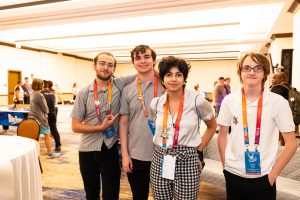 Once you’ve done your research and understand the job landscape in your area, it’s time to share that information and vision with your fellow educators, administrators, and Departments of Education. Gather testimonials from your past learners. Talk to employers in your community about learners they’ve worked with. Find ways to get others on board and see the impact of CTE in your school, district, and state.
Once you’ve done your research and understand the job landscape in your area, it’s time to share that information and vision with your fellow educators, administrators, and Departments of Education. Gather testimonials from your past learners. Talk to employers in your community about learners they’ve worked with. Find ways to get others on board and see the impact of CTE in your school, district, and state.
Matt’s had years of experience with these types of informative conversations. “Many administrators might not even realize what CTE encompasses. I’ve had conversations with school leaders before where they say, ‘I don’t know that we have many CTE classes at my school.’ They start talking about the programs they’re offering, and they mention robotics, entrepreneurship, and hospitality and tourism, for example. Those are all CTE programs! As professionals in the CTE sphere, it’s so important that we make sure everybody understands the breadth and depth of CTE; it’s all these different avenues that CTE offers to today’s students.”
With the large breadth of programs that CTE offers, there’s a place for everyone. Learners can discover their passions, and that’s something we can all get behind.
Help Students Find Their Passions
When students find their passion, they’re more engaged. We know well that student engagement is the gateway to true learning. Gallup has conducted millions of surveys of K12 students and has revealed some key characteristics of engaged students. Learners who strongly agreed that their school supported the strengths of each student and had at least one teacher who helped them feel excited for the future were 30 times as likely to be engaged in class than those who strongly disagreed. Learners need caring adults who recognize their strengths, potential, and goals.
Today’s CTE programs help learners find topics that are connected to their strengths and interests. Whether they want to be an entrepreneur or an IT professional, there are CTE pathways that help learners stay engaged in the classroom and learn the skills they need to get there.
“By leveraging CTE programs, students see a clear pathway to their goals. Students need to know that the path they take to their career, whether through a four-year university, a technical college, and/or apprenticeship program, is celebrated and supported by the adults in their lives.”
Establish Business Partnerships
The pathway to the workforce is only complete when employers are ready to hire these skilled learners. By engaging with businesses in the community, educators understand what career opportunities are available in their areas. Employers benefit as well. By sharing the skills they need in future employees, they influence curriculum and graduation requirements. Advisory boards allow schools and districts to incorporate feedback from employers across industries. And that doesn’t even cover the impact of potential internship or apprenticeship opportunities these employers have for learners.
Florida’s already seeing the cyclical benefit of business partnerships. Matt recently took a trip down to Miami to see the benefits firsthand. “Miami-Dade College has partnered with Tesla. There’s a Tesla training center right on the Miami-Dade campus,” Matt said. “Students enroll in the Tesla Academy program and get work experience at either a Tesla dealership or service center here in South Florida. After completing the program, they get hired as a full-time technician.” By connecting with learners before they graduate, companies like Tesla can bridge the skills gap and find the talent they need to fill crucial job roles.
Matt continued, “To me, this really speaks to the power of CTE. There are dual benefits to investing in this type of education. It benefits the learner, and it benefits the community. When you upskill people in your community, they can make more money, and that money ends up staying in the community. It only makes sense to expand programs like Tesla’s moving forward.”
Prepare your learners to hit the ground running after graduation. Give them the skills they need to establish a successful and engaging career. Learn more from Matt on the CERTIFIED Educator Podcast here.


 As a State CTE leader, you’re responsible for ensuring that essential information is properly collected, stored, and communicated to relevant agencies. However, many educators find data management difficult and time-consuming.
As a State CTE leader, you’re responsible for ensuring that essential information is properly collected, stored, and communicated to relevant agencies. However, many educators find data management difficult and time-consuming.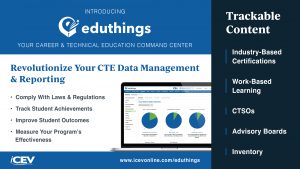
 Some states focus on a broad strokes approach that expands access to the sector as a whole. Last year,
Some states focus on a broad strokes approach that expands access to the sector as a whole. Last year,  Other states developed more focused career-specific pathways in close collaboration with industry partners.
Other states developed more focused career-specific pathways in close collaboration with industry partners. 


 In the constantly evolving education landscape,
In the constantly evolving education landscape, 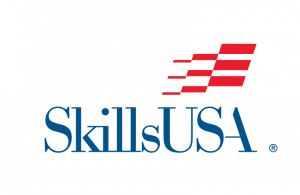 As a state Career Technical Education (CTE) leader, you’ve likely heard the phrase “skills gap” many times. We hear it often at
As a state Career Technical Education (CTE) leader, you’ve likely heard the phrase “skills gap” many times. We hear it often at 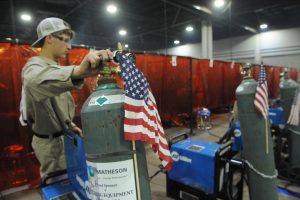
 According to the recent
According to the recent 
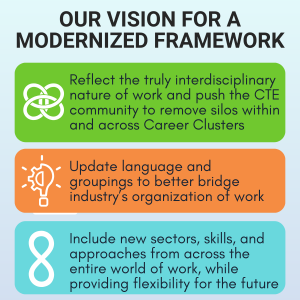 This modernization is an exciting opportunity to remove silos across industry and education, state and local levels, and across Career Clusters that are keeping learners from being fully prepared for the world of work.
This modernization is an exciting opportunity to remove silos across industry and education, state and local levels, and across Career Clusters that are keeping learners from being fully prepared for the world of work.  Kate Kreamer, Executive Director
Kate Kreamer, Executive Director  This week the House Appropriations Subcommittee for Labor, Health and Human Services, and Education (Labor-HHS-ED)—the entity responsible for determining funding for the
This week the House Appropriations Subcommittee for Labor, Health and Human Services, and Education (Labor-HHS-ED)—the entity responsible for determining funding for the  Despite the passage of this legislation, the future for H.R. 6655 remains uncertain. Senate leaders on the Health, Education, Labor, and Pensions (HELP) Committee, including Chair Sanders (D-VT) and Ranking Member Cassidy (R-LA), are currently working to negotiate a separate legislative proposal to reauthorize WIOA potentially later this spring. As these efforts continue to take shape, Advance CTE will continue to advocate for the organization’s
Despite the passage of this legislation, the future for H.R. 6655 remains uncertain. Senate leaders on the Health, Education, Labor, and Pensions (HELP) Committee, including Chair Sanders (D-VT) and Ranking Member Cassidy (R-LA), are currently working to negotiate a separate legislative proposal to reauthorize WIOA potentially later this spring. As these efforts continue to take shape, Advance CTE will continue to advocate for the organization’s 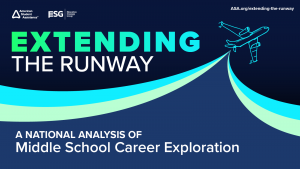 In recent years, middle school career exploration has gained traction as a foundational element of Career Technical Education (CTE). As many State CTE Directors and leaders know, the
In recent years, middle school career exploration has gained traction as a foundational element of Career Technical Education (CTE). As many State CTE Directors and leaders know, the 